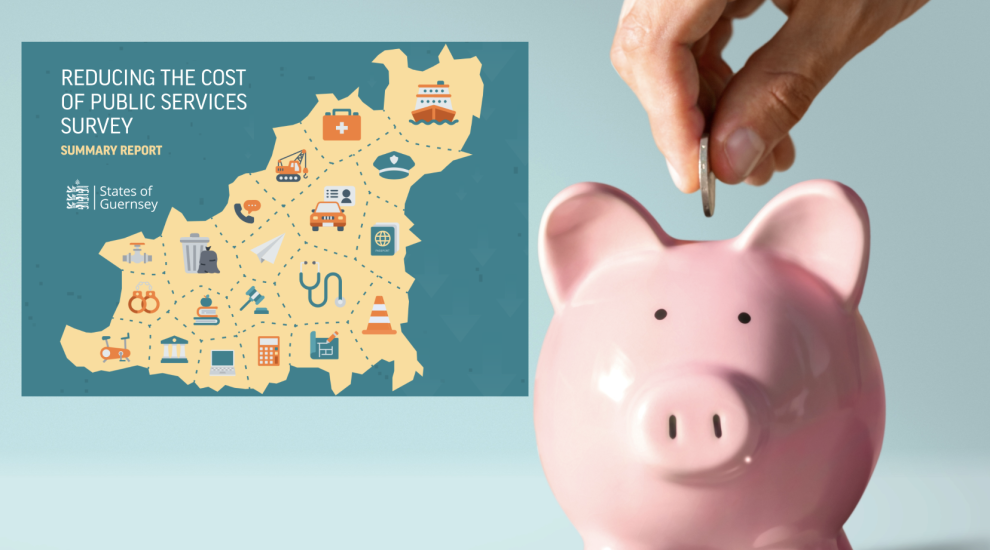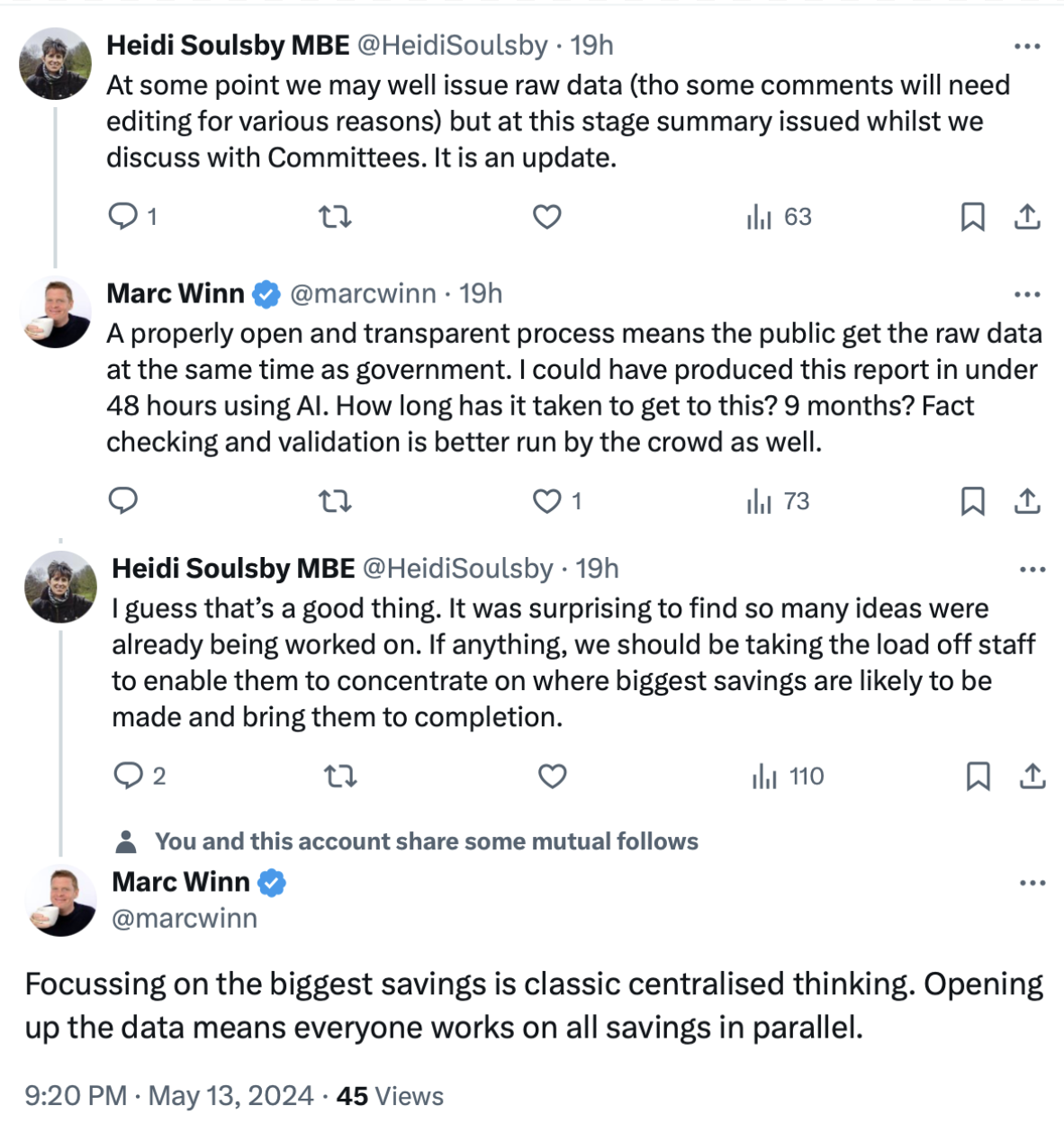


Raw data collected via a public survey could be released in the future as the States works its way through saving suggestions submitted by members of the public, politicians, and other interested parties.
Thousands of suggestions were made in total, with most grouped together in different categories and shared in a Summary Report published this week.
In response to a question on X (Twitter) Deputy Heidi Soulsby said the edited raw data may be published "at some point", and that in the meantime the Summary Report should be treated as an update on the wider workstreams.
The question had been posed by businessman Marc Winn who queried the usefulness of the Summary Report.
While it’s informative, the document only provides a summary and not the complete raw data.
— Marc Winn (@marcwinn) May 13, 2024
Releasing raw data from such surveys is crucial for several reasons:
Transparency: Full disclosure of raw data allows residents to see the entire picture, unfiltered and uninterpreted.… https://t.co/c9sw0k0Uyz
Mr Winn works as an adviser to people and organisations wanting to embrace technology including Artificial Intelilgence.
He said releasing the raw data collated through surveys is important when presenting evidence claimed to be supported by that data.
He said it is imperative when it comes to transparency, accountability, informing public debate, correcting errors, and building public knowledge.

Pictured: Deputy Soulsby said the raw data may be released "at some point".
Deputy Soulsby, is Chair of the Reducing the Cost of Public Services Sub-Committee.
When the Summary Report was released she said: “Now that we’re getting a clearer picture of where the most promising suggestions sit within the States’ different areas of responsibility, we can see where work that’s already underway dovetails with the ideas for reducing costs. One example is in health, which is the biggest area of expenditure for the States.
"The Committee for Health & Social Care is undertaking a primary care review and looking at a sustainable healthcare delivery model, and it is clearly logical and practical to make sure some of the very good suggestions we have had are included in these reviews, rather than working on them as separate isolated matters which could lead to unintended consequences. We do not want to see salami slicing of services that could result in greater costs in the long term.
"There were a considerable number of suggestions that are considered worthy of taking forward. However, it would be impossible to embark on every one at once. Indeed, it could be argued that the States are already trying to do too much and as a result are not managing to deliver on opportunities that have already been identified. Therefore, our immediate next steps are to meet with some of the Committee areas where we believe the biggest cost reductions, in financial terms, can be made, and unsurprisingly that includes our biggest spending Committee areas ie health, education and social security to understand their appetite and approach to taking things forward.”
Comments
Comments on this story express the views of the commentator only, not Bailiwick Publishing. We are unable to guarantee the accuracy of any of those comments.